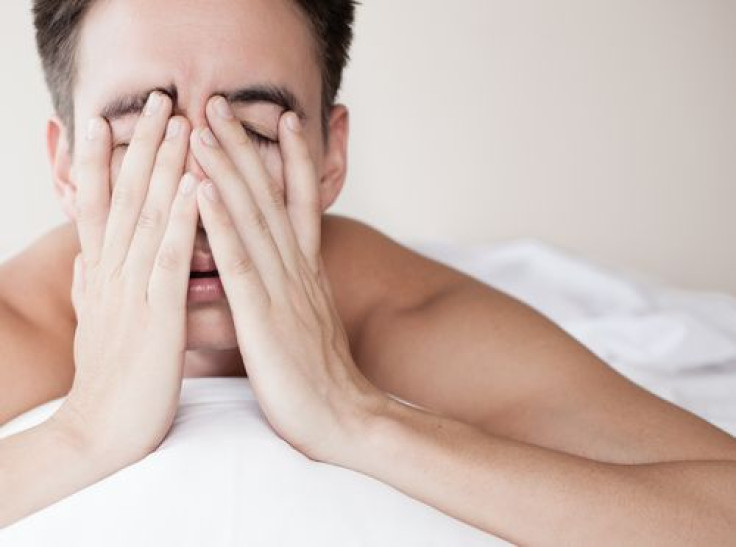Sleep Deprivation Results In An Increase Of Brain-Damage Molecule In Men

Getting enough shut-eye — it’s the foundation of good physical, mental, and emotional health. Approximately 40 million Americans do not get enough sleep, 30 percent of which make up the civilian workforce. This is especially dangerous because many of these workers could harm themselves or their co-workers on the job. The recommended amount of sleep as per the National Sleep Foundation is seven to nine hours for adults, but many people are seriously lacking in this practice, causing a number of health issues. Now a new study, published in the latest issue of the journal Sleep, supports the fact that a lack in sleep can be detrimental to brain health in men.
Swedish researchers from Uppsala University found that one night with no sleep can lead to an increase in the levels of molecules that are biomarkers for brain damage. “We observed that a night of total sleep loss was followed by increased blood concentrations of NSE and S-100B. These brain molecules typically rise in blood under conditions of brain damage. Thus, our results indicate that a lack of sleep may promote neurodegenerative processes," said Christian Benedict, a lead author and investigator of the study, Medical News Today reported. While the results might not be equivalent to getting hit in the head, but it is "still significant," the Daily Mail reports.
The study used 15 young and healthy men who were asked to spend two nights in a sleep laboratory. (The ages of the men were not specified.) One night, the men were deprived of sleep, and the other night they were able to sleep for approximately eight hours. Before and after nights one and two, all 15 men gave blood samples, which were measured for blood levels of the brain molecules neuron-specific enolase (NSE) and S100 calcium-binding protein B (S-100B).
These two molecules are a part of the brain tissue make-up and an increase in these molecules is usually a sign of brain tissue that has been damaged or a fault in the brain-blood barrier — sometimes it can mean both. The night when the men were deprived of sleep, they had a 20 percent increase in the levels of NSE and S-100B, in contrast to the night they were able to sleep a full eight hours.
More studies need to be completed in order to prove that a lack in sleep can demonstrate brain-damaging like symptoms. Benedict suggests that he and his colleagues conduct a study using both blood and spinal fluid sample in order to determine whether the raised levels of brain molecules really are due to brain cell damage, blood-brain barrier damage, or “is just a consequence of increased gene expression in non-neuronal cells, such as leukocytes?” Benedict asked.
The study only used a small handful of male participants. The results might differ if female participants are used in future research. Nevertheless, the study is a good starting point for further investigation. "The findings of our trial indicate that a good night's sleep may be critical for maintaining brain health," Benedict said, as reported by CBC news.
Source: Benedict C, Cedernaes J, Giedraitis V et al. Acute Sleep Deprivation Increases Serum Levels of Neuron-Specific Enolase (NSE) and S100 Calcium-Binding Protein B (S-100B) in Healthy Young Men. Sleep. 2014.



























